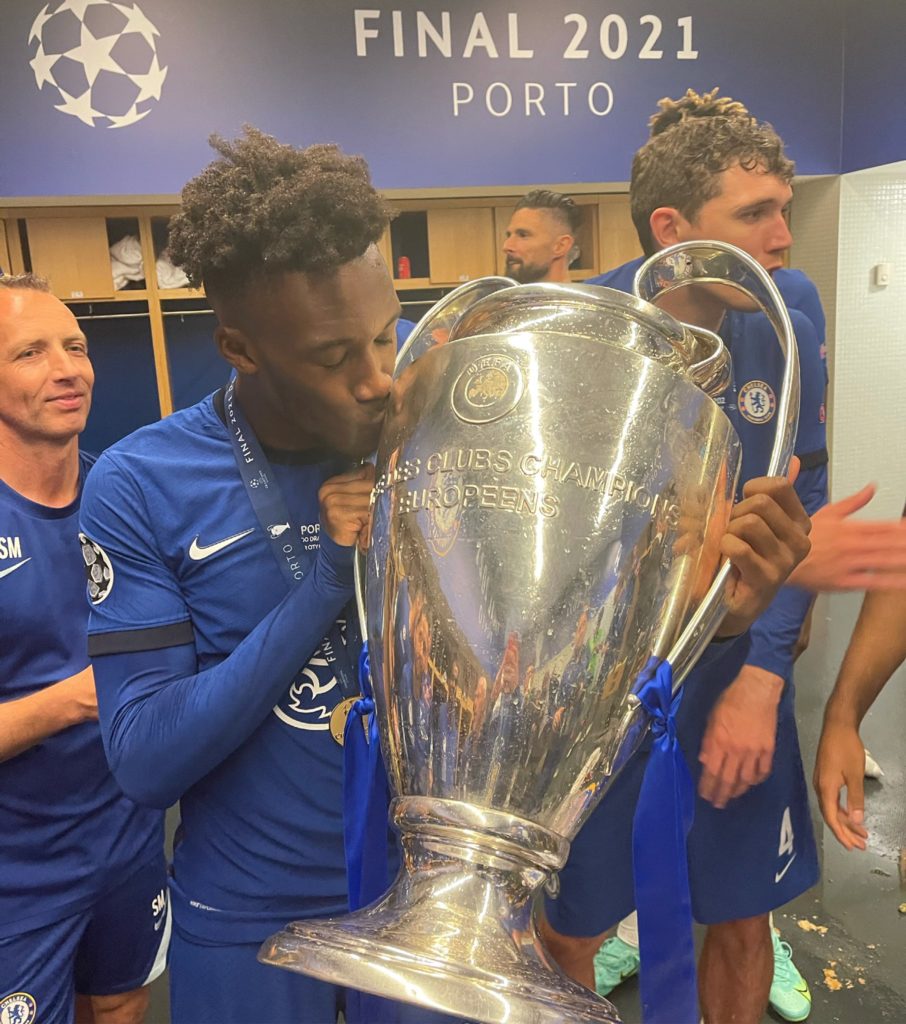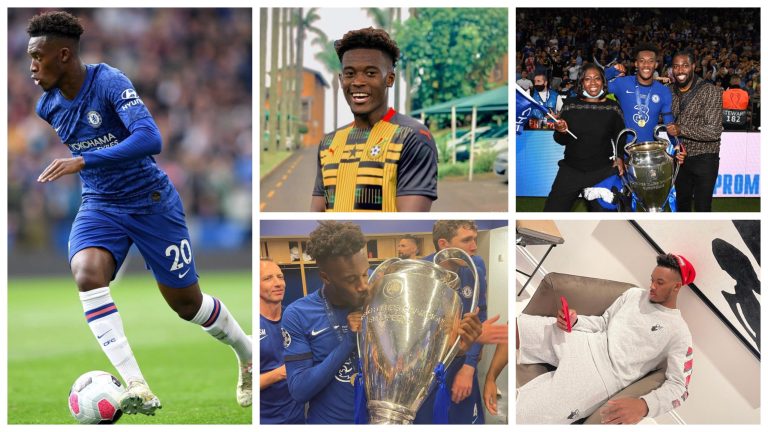Callum Hudson-Odoi can still switch to play for the Ghana national football team.
The footballer has played for the English national football team and recognized as An English footballer, and according to the new FIFA rules, Callum Hudson-Odoi can still play for his mother country.
FIFA has relaxed the rules on switching international team allegiance, but why can it happen?
International football may have lost some of its allure for some, but playing for one’s country remains the pinnacle for many footballers and the World Cup is still the most popular sporting event in the world.
One of the major talking points within the international game in the 21st century has been the practice of switching teams, which has been facilitated by FIFA.
Indeed, there are now plenty of examples where footballers have represented a country, even up to senior level, before later declaring for another country.
In late 2020, FIFA announced at its 70th annual congress that the eligibility rules had been updated, in what administrators have described as the “first wholesale modernization” of the rules, with added codification and clarification.
Why Callum Hudson-Odoi can still play for Ghana as his national team
The new FIFA eligibility rules build on the foundation of the rules that had already been in place prior to September 2020.
So, the basis of the eligibility rules is effectively the same, but there have been a number of clarifications and some additional insertions.
Callum Hudson-Odoi can still switch and play for Ghana if he wants.
In particular, FIFA has added three new exceptions whereby a player may change the national team they play for.
First, it is now possible for a player to change national team even if they have played competitively at senior level, provided:
– the player held the nationality of their new association at the time of their first official appearance for their first national team.
– the player played in no more than three competitive senior games before the age of 21.
– The player has not played in the final stage of an official tournament such as the World Cup, European Championship, Copa America etc.
– at least three years have passed since the player’s last senior appearance for their previous national team.
So, a player who is eligible for Ghana and England could, for the sake of argument, play for Ghana in three World Cup 2022 qualification games, then represent England at the 2026 World Cup. The opposite – playing at a World Cup then switching – is not permitted.
Callum Hudson-Odoi can still switch and play for Ghana if he wants.
Second, a player can now change to a new national team even if they did not hold that nationality at the time of their first appearance for their old national team, as long as they last played for the old national team before the age of 21.
It should be noted that there is an exception underpinned by the principle of legal certainty, whereby the age limit of 21 does not apply to players who played their last match for their old national team prior to September 18, 2020, when the new rules were introduced.
This exception explains why Aymeric Laporte, who played for France Under-21s at the age of 21 in 2016, is permitted to switch to Spain.
Finally, a competitive cap will not keep a player tied to a national team in the event that they suddenly become stateless – that is, lose their nationality – against their will.

Article 6 of the FIFI’s constitution indicates that players must also satisfy one of the following:
– The player was born on the territory of the association.
– The player’s biological mother or father was born on the territory of the association.
– The player’s grandmother or grandfather was born on the territory of the association.
– The player has lived on the territory of the association for at least five years.
If a player acquires a new nationality in order to play for a national team, Article 7 applies and the above stipulations also apply in such a scenario.
FIFA has published a wonderfully digestible video explainer of the rules which can be watched on the federation’s official YouTube channel here.
So in conclusion, Callum Hudson-Odoi can still switch to Ghana because he hasn’t played more than three games for England and all games he played happened before he turned 21.
Callum is in Ghana currently.
Credit: Couple of text from GOAL.



